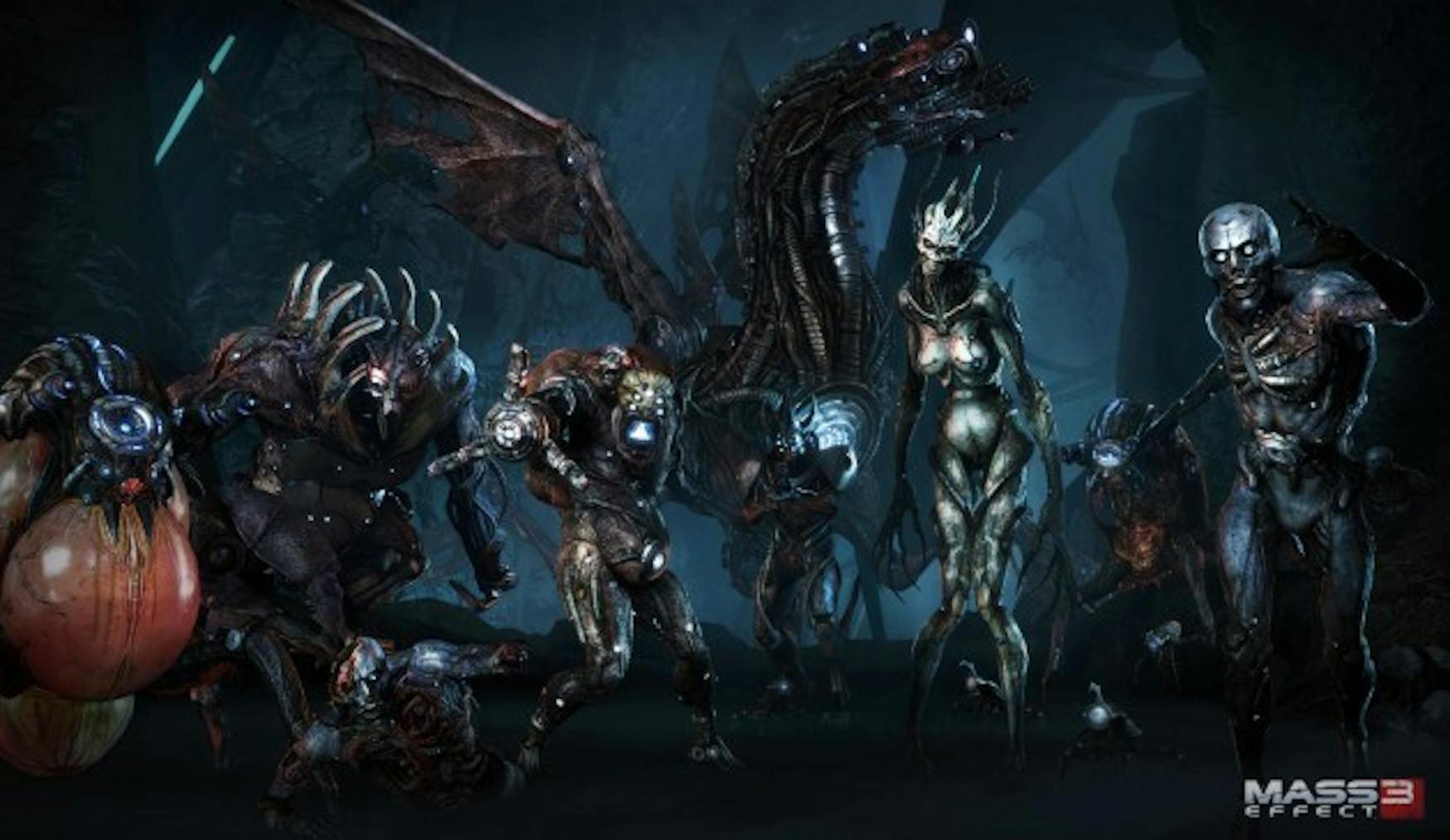Mass Effect' game trilogy concludes
A little over four years ago, BioWare-the studio responsible for RPG hits such as Baldur's Gate, Star Wars: The Knights of the Old Republic and Dragon Age-embarked on its most ambitious project yet with the release of the first game in the Mass Effect trilogy. Each decision that the player makes during their time within the sci-fi epic will have consequences spanning throughout all three games, as saved data from each iteration in the series can be imported into the next. Because of this, the results of even minor choices can be felt, as the player shapes the game world and creates his or her own unique narrative. No series prior or since has attempted a narrative feat quite on this scale. This one-of-a-kind endeavor finally came to a close with the release of Mass Effect 3 on Xbox 360, Playstation 3 and PC in March.
Once again, players take on the role of either a male or female Commander Shepard, depending on the player's choice, as he or she must attempt to save the galaxy from the Reapers, a race of massive, synthetic behemoths guided by a central artificial intelligence bent on purging the galaxy of all life. The player is tasked with uniting the various races of the galaxy in order to combat the imminent Reaper threat while also assembling a small crew of the galaxy's best to aid him or her on the mission. Every decision made throughout the game carries tremendous weight; with the fate of the galaxy on the line, players can truly feel the desperation of the world's inhabitants, and the third game takes on a much darker tone than the rest of the series.
This is where the set story ends, however, since almost everything that happens in Mass Effect 3 is different for each player. It's hard to even imagine all of the different scenarios that players can experience depending on the choices they have made in previous games, especially if certain characters didn't survive the first two iterations.
During my time with Mass Effect 3, I truly felt as though I had crafted the world I was playing in. I loved meeting characters from the previous games and seeing just how my actions had played a role in this universe. The absolutely fantastic writing and voice work do a great deal to further immerse the player in this narrative. Very rarely have I played a game where I cared this much about the people and places in its world. The plot, dialogue sequences and sense of environment are unrivaled in video games today.
Unfortunately, as in previous entries to the series, combat takes a bit of a back seat. The Mass Effect series plays as a third-person-shooter-RPG hybrid, but as it has progressed, shooting mechanics have come to occupy a more central role. These mechanics are unquestionably improved from Mass Effect 2; the weapons have a greater sense of weight and movement across the battlefield from cover to cover is more fluid. Nonetheless, the game's combat doesn't quite compete with some of the best games in the genre, such as Gears of War or Red Dead Redemption. Beyond the core mechanics, the design of levels in side missions isn't nearly as well thought out as it is in the primary campaign. This occasionally highlights some of the weaknesses in the overall gameplay and leads to some incredibly frustrating segments. A few battles near the end of the game were particularly difficult due to issues with the game's controls, and had I not been so invested in the story, I might have put the game down for a while.
Luckily, the narrative more than makes up for the gameplay's shortcomings, and players will hang in to see the conclusion to this massive adventure. This has been the subject of some controversy among fans who have voiced their dissatisfaction across the Internet via Twitter, Reddit and several popular gaming websites. One group of fans organized a campaign demanding a new ending and donated over $80,000 to the charity Child's Play-an organization that seeks to "improve the lives of children in hospitals ... through the kindness and generosity of the videogame industry and the power of play," according to its website-to bring attention to their protest. Without spoiling the ending, the game's final scenes are remarkably similar to each other, regardless of the choices the player has made throughout the series. This has angered some gamers who feel that they have been misled by the central premise that all choices have an impact that spans the trilogy and that every gamer's experience will be unique.
Others simply feel that the game's conclusion doesn't offer enough closure. While I'm sympathetic to these complaints and agree that more could have been done with the game's final scenes, I personally think that Mass Effect 3, when viewed in its entirety as the conclusion to the series, provides more than enough closure. Furthermore, I don't believe that the results of every decision need to be included in this final scene. The game's ending leaves something to the imagination, and players will have to be content in knowing that their decisions mattered without a final visual representation.
Complaints about the ending and shooting mechanics aside, Mass Effect 3 tells a brilliant story and is a masterpiece of a game that no gamer should miss. Playing all three games in the series with the same character is an unparalleled experience in video games today, and this series will without a doubt go down as one of the greatest from this generation of gaming despite its minor flaws. I give Mass Effect 3 a 9.5/10.




Please note All comments are eligible for publication in The Justice.